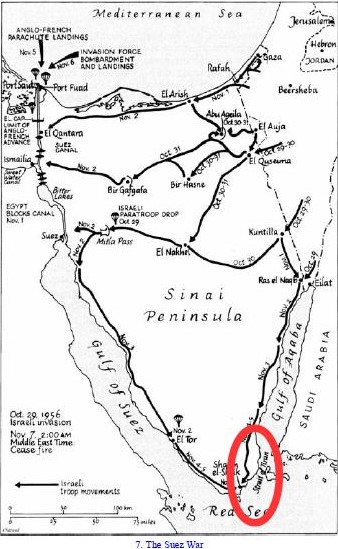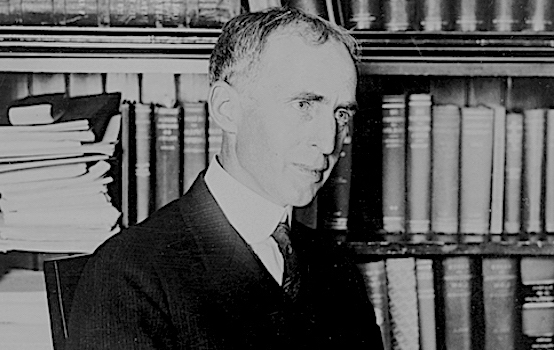Nathan recently chastised me:
Why the double standard, Neil?
Barely a month ago you were empathizing with the Japanese by laying blame on the U.S. for Japan’s attack on Pearl Harbor, noting that “the U.S. had just cut off 80% of Japan’s oil supply so [Japan] was obviously faced with a situation of complete capitulation or war with the U.S.”
Yet now, rather than empathize with Israel as well, you seem to lay the blame on them for the Six-Day War when you talk of the “myth of 1967 being the war when the Arabs attacked Israel,” and then refer to “the territory from which Israel launched its attack on the Arabs.”
Why not mention that the Soviet’s and Syria were spurring an Arab attack by incorrectly reporting Israel had plans to invade Syria? Why not mention that Nasser had asked and been granted his request to have UN peace-keeping forces removed from the Sinai Peninsula, and then had begun amassing Egyptian troops in the Sinai? Why not mention that Nasser was blockading Israeli ships in the Straits of Tiran? Why not mention that Jordan’s King Husayn had flown to Cairo to sign a defense pact with Egypt? In other words, Neil, why not mention the fact that, like Japan, Israel itself was faced with a situation of war? (Yes, Neil, these questions are rhetorical. Given your obvious agenda, it’s quite clear why you wouldn’t mention these things.)
I promised Nathan a response in a full post. So here we go.
Let’s take these points one by one:
- Why not mention that the Soviet’s and Syria were spurring an Arab attack by incorrectly reporting Israel had plans to invade Syria?
I did. I wrote two days after the post about Japan the following about the 1967 War:
The Soviet Union, supporter of the Syrian government, in response sent a report to Syria’s ally Egypt to warn that Israel was moving its forces towards the northern border and planning to attack Syria. Egypt’s president, Nasser, was pressured to take some decisive action to maintain his credibility as leader of the Arab nations:
The report [from the USSR] was untrue and Nasser knew that it was untrue, but he was in a quandary. His army was bogged down in an inconclusive war in Yemen, and he knew that Israel was militarily stronger than all the Arab confrontation states taken together. Yet, politically, he could not afford to remain inactive, because his leadership of the Arab world was being challenged. . . . Syria had a defense pact with Egypt that compelled it to go to Syria’s aid in the event of an Israeli attack. Clearly, Nasser had to do something, both to preserve his own credibility as an ally and to restrain the hotheads in Damascus. There is general agreement among commentators that Nasser neither wanted nor planned to go to war with Israel. (252f)
Nasser decided on three-fold action to impress the Arab public . . . .
…
- Why not mention that Nasser had asked and been granted his request to have UN peace-keeping forces removed from the Sinai Peninsula, and then had begun amassing Egyptian troops in the Sinai?
I did. I wrote in the same post (within two days of my Japan post):
Nasser decided on three-fold action to impress the Arab public:
1. He sent a large force into the Sinai
2. He ordered the removal of the U.N. peacekeepers from the Sinai
…
- Why not mention that Nasser was blockading Israeli ships in the Straits of Tiran?
I did. That was the third point in the above list.
3. He closed the Straits of Tiran to Israel shipping
I even added a graphic to that same point:

…
- Why not mention that Jordan’s King Husayn had flown to Cairo to sign a defense pact with Egypt?
You caught me out on that one. But can you explain how a “defense pact” is evidence for a plot to wage a non-defensive war of aggression? Till then, I think you should take note of what I did post about Jordan and King Hussein:
The fighting on the eastern front was initiated by Jordan, not by Israel. King Hussein got carried along by the powerful current of Arab nationalism. . . . On 5 June, Jordan started shelling the Israeli side in Jerusalem. This could have been interpreted either as a salvo to uphold Jordanian honor or as a declaration of war. Eshkol decided to give King Hussein the benefit of the doubt. Through General Odd Bull, the Norwegian chief of staff of UNTSO, he sent the following message on the morning of 5 June: “We shall not initiate any action whatsoever against Jordan. However, should Jordan open hostilities, we shall react with all our might, and the king will have to bear the full responsibility for the consequences.” King Hussein told General Bull that it was too late; the die was cast. Hussein had already handed over command of his forces to an Egyptian general. He made the mistake of his life. Under Egyptian command the Jordanian forces intensified the shelling, captured Government House, where UNTSO had its headquarters, and started moving their tanks into the West Bank. (260)
…
- Given your obvious agenda, it’s quite clear why you wouldn’t mention these things.
Well, since you can now see that I had indeed mentioned almost all of those things you said that I “would not mention”, has your view of “my agenda” changed in any way? Continue reading “Given my obvious agenda. . . . A Post for Nathan”

